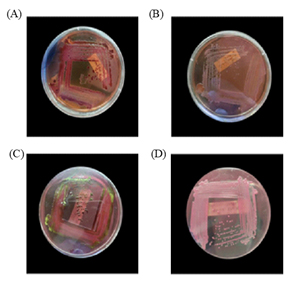Dominant bacterial pathogens in a river receiving swine farm effluent
Main Article Content
Abstract
Swine production dominates the livestock sector in the Philippines, providing 60% of the nation’s meat supply. Some of the swine industry’s challenges include waste management, resulting in environmental issues such as air pollution, water contamination, and the spread of pathogens that can affect human health. Severe impacts of swine waste on water bodies can lead to eutrophication and render water systems unproductive. This study aimed to isolate and characterize the dominant bacterial pathogens in swine waste effluent in a municipality in southern Iloilo, Philippines. Water samples from the receiving river were collected and cultured to isolate bacteria, followed by genetic identification and phylogenetic analysis to understand the microbial contamination in rivers impacted by the swine farm. Four dominant bacterial strains were isolated and identified using 16S rRNA gene sequencing. All strains, confirmed as Gram-negative, belong to the Enterobacteriaceae family, specifically Klebsiella pneumoniae and Enterobacter cloacae. K. pneumoniae, highly resistant and associated with significant health risks, is found in diverse environments and causes severe infections. E. cloacae, an opportunistic pathogen, contributes to water contamination and antibiotic resistance. The study underscores the environmental and public health concerns linked to these bacteria, emphasizing the need for stringent waste management and infection control strategies.
Article Details

This work is licensed under a Creative Commons Attribution 4.0 International License.
